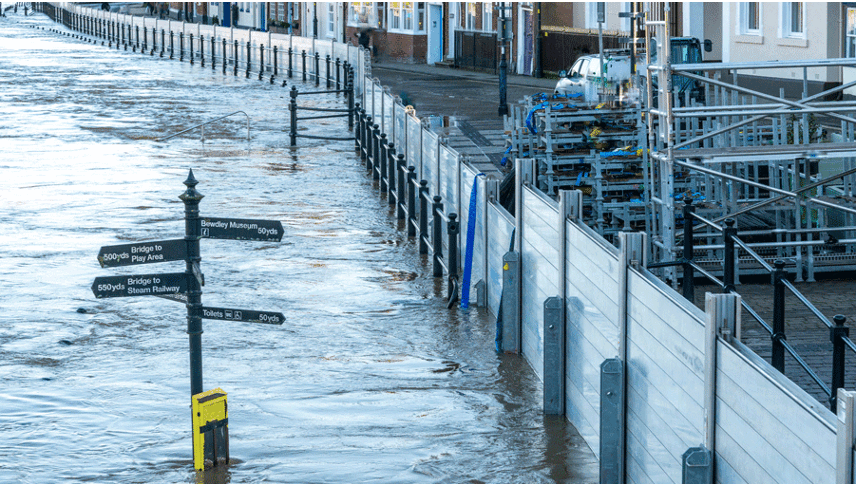Register for free and continue reading
Join our growing army of changemakers and get unlimited access to our premium content

Approximately 1.9 million people across the UK currently living in areas at significant risk from either river, coastal or surface water flooding.
Friends of the Earth, along with two individuals, local campaigner Kevin Jordan and disability activist Doug Paulley, have filed a legal challenge, citing their personal experiences of the climate crisis’s impacts.
Jordan found himself homeless last year after his house in Hemsby, Norfolk, succumbed to coastal erosion, while Paulley, managing multiple health conditions, faces heightened vulnerability to exacerbated symptoms amid rising summer temperatures, thereby elevating his risk of serious harm.
The co-claimant Jordan said: “When I bought my house 14 years ago, I was told it would be safe for about another 100 years. It wasn’t.
“I may have lost my home to climate change, but the fight goes on.”
High Court judge Justice Sheldon emphasised that the issues raised by the claimants to be of “considerable public importance”, while mandating a judicial review of the Government’s plan to safeguard its citizens and infrastructure from the adverse effects of the climate crisis.
The two-day ‘rolled up’ hearing concerning the National Adaptation Plan will take place on 18-19 June.
The co-claimant Paulley said: “I’m delighted the High Court will hear our legal challenge. The government’s climate adaption plan must be revised to better protect everyone.”
This comes as the European Court of Human Rights recently ruled in favour of a group of elderly Swiss women who contended that insufficient action on climate change amounted to a breach of their human rights.
Earlier this year, Friends of the Earth filed another legal challenge against the Government, arguing that its strategy to meet its legally binding carbon reduction targets remains ‘weak’.
The group told edie that the case has concluded, and the organisation is now awaiting the court’s judgment, a process that could span from weeks to months.
Dangers of neglecting climate adaptation
Last month, the Climate Change Committee (CCC), the UK’s official climate advisors, warned that the Government’s current national adaptation programme is “inadequate”, putting the national infrastructure, homes, people and nature under great risk.
According to the UK Climate Change Risk Assessment, approximately 1.9 million people across the UK currently living in areas at significant risk from either river, coastal or surface water flooding, with the potential for this at-risk population to double as early as the 2050s.
The green groups have contended that the Government’s investment in climate adaptation and resilience falls short; nevertheless, this inadequate level of climate adaptation finance is not confined to the UK alone but rather extends globally.
Mobilising global climate adaptation finance
Research indicates that currently, less than 10% of all climate finance is directed towards adaptation efforts. The global gap in adaptation financing is widening, with current funding levels significantly below the estimated $212bn per year required through 2030 in developing countries alone.
This week, the United Nations Office for Disaster Risk Reduction (UNDRR), Standard Chartered and KPMG have launched a roadmap to mobilise and coordinate sector-wide initiatives aimed at bridging the substantial financial gap in adaptation and resilience efforts.
This guide outlines more than 100 viable activities across adaptation and resilience domains, such as climate-resistant crops, vertical farming, natural flood protection, water conservation initiatives, investments in public hospital infrastructure, renewable energy storage solutions and the preservation and replanting of mangroves.
The roadmap also responds to a call made during COP28 for a consistent and shared language to harmonise actions addressing the financing shortfall.
Standard Chartered’s chief sustainability officer Marisa Drew said: “Finance and investment for adaptation and resilience needs to rapidly scale to address a critical shortfall amid rising demand.
“The Guide will help offer confidence to investors looking to allocate capital to adaptation and resilience projects, helping to advance sector-wide understanding and drive the critical step-change we need to see in capital mobilisation for this crucial area of sustainable finance.”


Please login or Register to leave a comment.